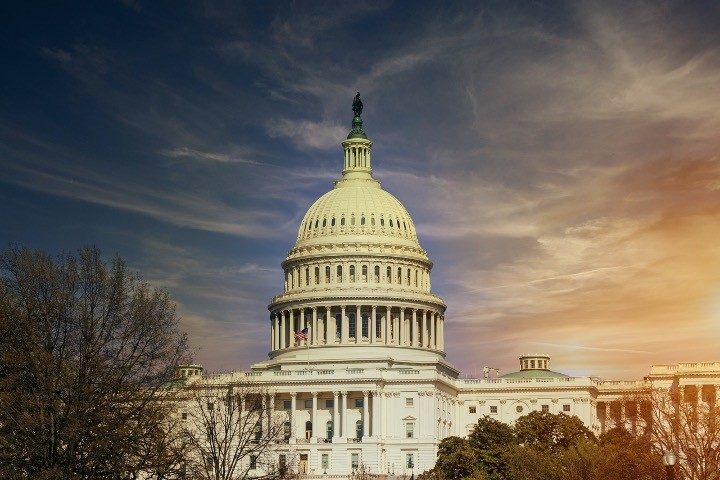
Vice President and Democratic nominee for president Kamala Harris took a decisive stance on the filibuster and abortion “rights” during her latest rare interview. Speaking with Wisconsin Public Radio’s “Wisconsin Today” on Monday, Harris expressed her strong support for ending the filibuster to restore Roe v. Wade and protect abortion “rights” nationally. The interview, which aired Tuesday morning, comes as abortion access remains a pivotal issue in the 2024 election.
She said,
I think we should eliminate the filibuster for Roe and get us to the point where 51 votes [in the U.S. Senate] would be what we need to actually put back in law the protections for reproductive freedom and for the ability of every person and every woman to make decisions about their own body and not have their government tell them what to do.
Since the Supreme Court overturned Roe v. Wade in June 2022, President Joe Biden and Vice President Harris, along with the Democratic Party, have committed to pushing for federal legislation to enshrine access to abortion into law.
Beyond Roe
To clarify, the bill Harris is referring to and fully supports is the Women’s Health Protection Act (WHPA). This proposed legislation is designed to safeguard access to abortion nationwide by establishing a legal framework that overrides state-level restrictions. A key aspect of this bill is that it would go beyond simply restoring the protections that were in place under Roe v. Wade. Whereas Roe legalized abortion up to the point of fetal viability — typically around 21 to 24 weeks of gestation — the WHPA removes restrictions based on fetal viability and allows abortion access throughout the entire duration of a pregnancy.
The WHPA would severely preempt states from passing laws designed to place reasonable restrictions on abortion access or protect the unborn. Many states have passed laws in recent years regarding mandatory waiting periods, ultrasounds, and limitations on clinics that provide abortions. Under WHPA, these types of protections would be federally prohibited.
Finally, the act defines abortion rights rather broadly, ensuring that healthcare providers are able to offer abortion services without “restrictive” state interference. This could extend to telemedicine, allowing much broader access to abortion medications across state lines.
The backing of the WHPA by Democratic leadership highlights their commitment to ensuring abortion access nationwide. At the same time, it also underscores the political risk associated with aligning policy on this issue against majority public opinion. By advocating for legislation that goes beyond previous legal standards, Harris and other Democrats are adamant in securing broad access to abortion, even though this could further polarize the national debate.
Harris’ Reversal on Filibuster
Harris’ latest remarks renew focus on the Democrats’ legislative strategy to overcome Republican opposition in the Senate. Democrats view the filibuster as a key obstacle to enacting their priorities, particularly on issues like abortion and voting.
Harris has not been consistent in supporting ending the filibuster, a parliamentary procedure that requires 60 votes in the Senate to advance most legislation.
In 2022, as vice president, she advocated for eliminating the filibuster to pass legislation concerning both voting rights and access to abortion. This stance came in response to Republican-led efforts to pass voter security laws in several states, as well as the Supreme Court’s decision to overturn Roe v. Wade.
During her 2019 presidential campaign, Harris voiced her support for ending the filibuster to pass the Green New Deal, a radical climate change policy proposal.
In 2017, however, Harris appeared to be a defender of the procedure. Back then, she joined other Democrats in signing a letter urging then-Senate Majority Leader Mitch McConnell (R-Ky.) and then-Senate Minority Leader Chuck Schumer (D-N.Y.) to maintain the filibuster, as Democrats were concerned at the time that Republicans might eliminate it.
Sen. Tom Cotton (R-Ark.), who published the letter on X, condemned Harris for saying “anything to get elected.”
The filibuster has been a hotly debated tool in the Senate, with both parties historically using it to block or delay legislation. In recent years, Democrats have increasingly called for its removal. However, many Republicans and some centrist Democrats argue that the filibuster encourages bipartisan cooperation.
Blowback
Harris’ remarks sparked strong criticism from Senators Joe Manchin (I-W.Va.) and Kyrsten Sinema (I-Ariz.), two of the Senate’s most prominent supporters of the 60-vote threshold.
Manchin was particularly harsh in his critique of Harris’ stance. Speaking to CNN, he stated that he would not support Harris’ presidential bid. He called her plan to eliminate the filibuster “a massive mistake” should Democrats retain control of the Senate.
“[Filibuster] is the only thing that keeps us talking and working together. If she gets rid of that, then this would be the House on steroids,” he argued. In his view, the filibuster plays a critical role in preventing partisan swings in policy. It stabilizes democratic process by encouraging dialogue and protecting the country from the “dysfunction” of partisanship.
Sinema echoed Manchin’s concerns. In a post on X, she reasoned that eliminating the filibuster to codify Roe v. Wade would set a dangerous precedent, potentially allowing a future Congress to outlaw abortion nationwide.
Legal and Legislative Challenges
Despite Harris’ optimism, significant challenges remain in her quest to restore and expand federal protections for abortions. Even if Democrats were to gain enough seats to hold a majority in both the House and Senate, passing such a law would likely face intense legal challenges. The political polarization surrounding abortion and the courts’ conservative leanings could make it difficult to maintain a federal abortion law without additional judicial scrutiny.
Further complicating matters is the Republican Party’s strong opposition to ending the filibuster, as they view it as a necessary tool to prevent what they see as partisan overreach. Former President Donald Trump, Harris’ opponent in the 2024 race, has consistently opposed any moves to eliminate the filibuster.


